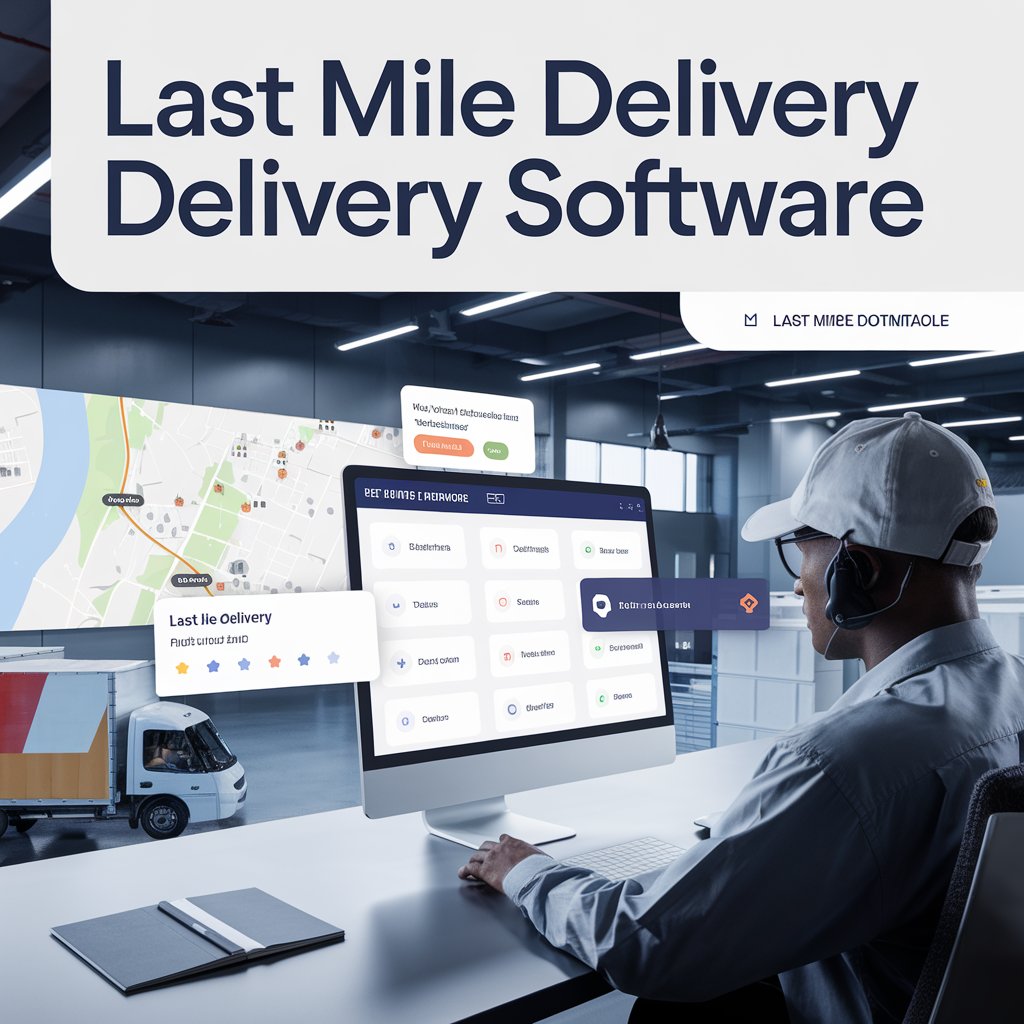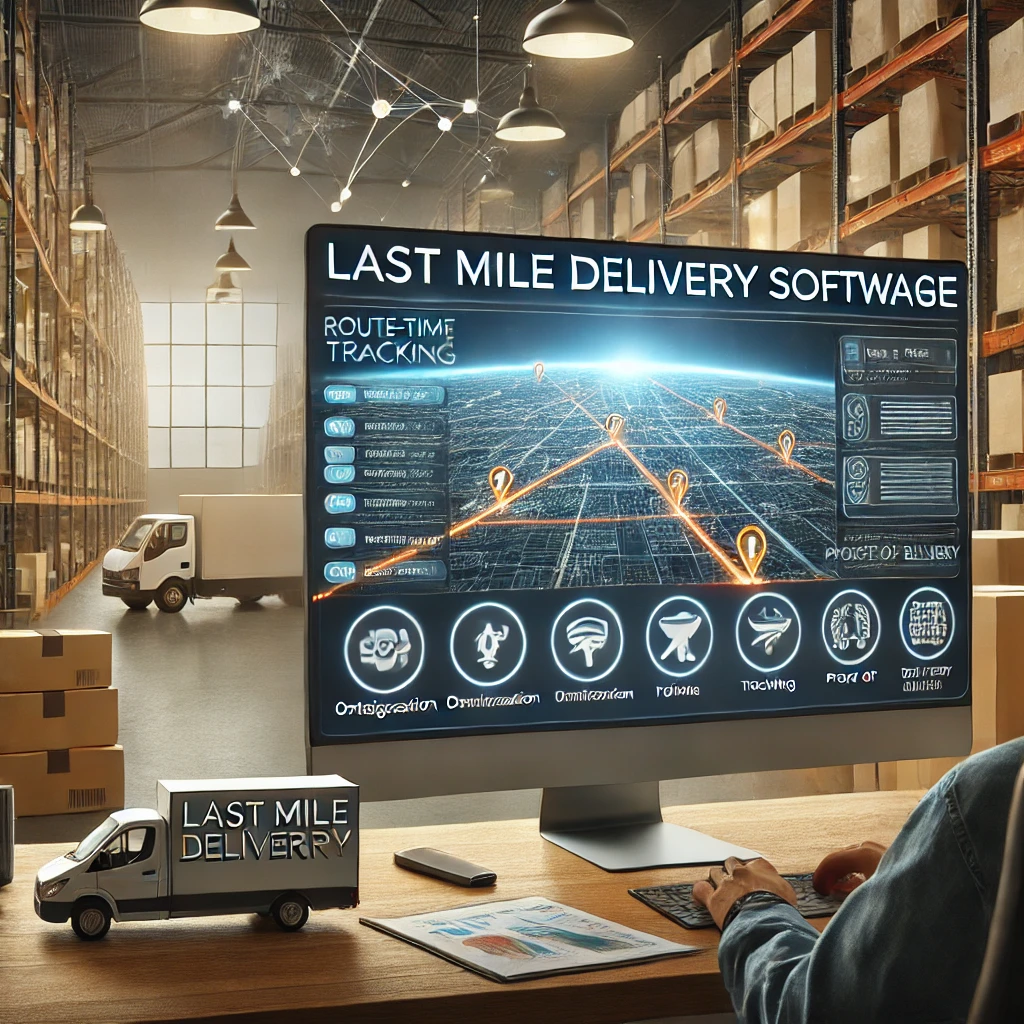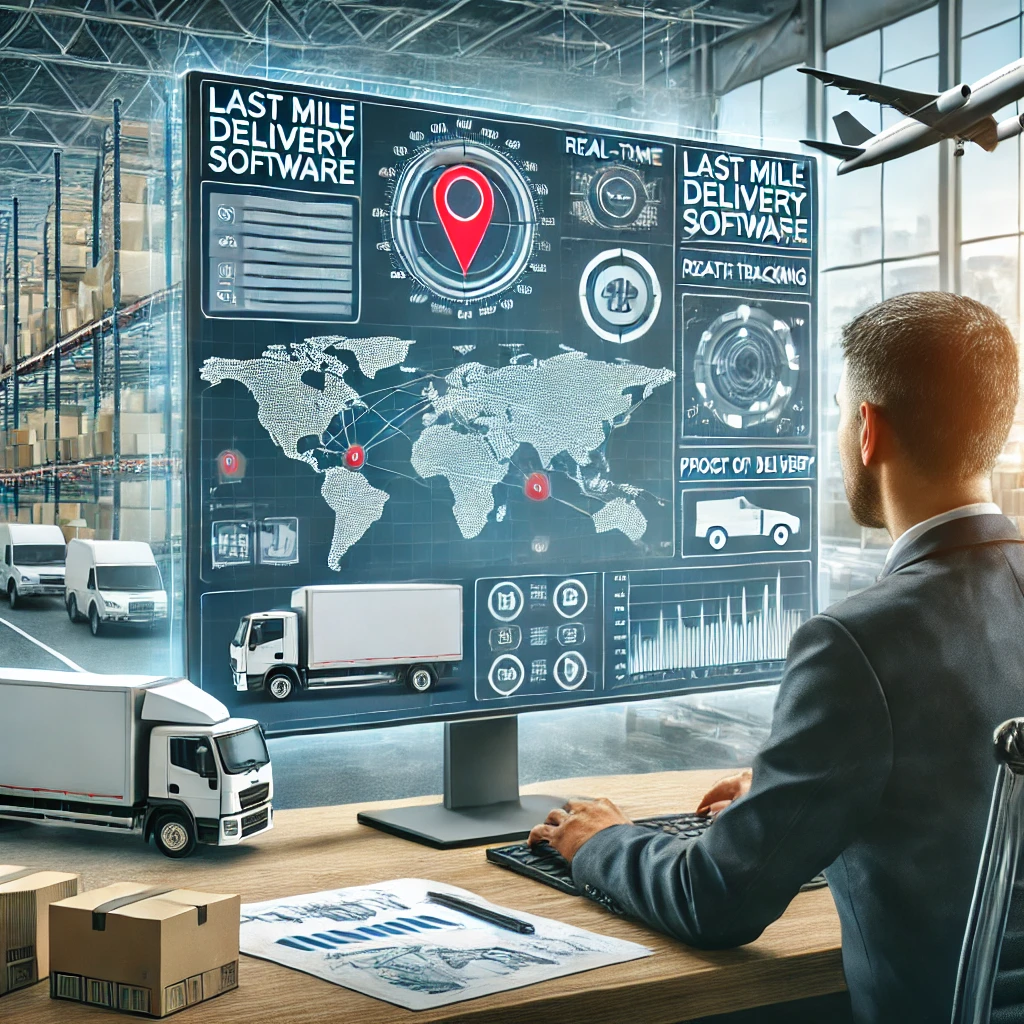Last Mile Delivery Software: Revolutionizing Logistics in the Digital Age

Understanding Last Mile Delivery Software
Last mile delivery software is a specialized technology solution designed to optimize the final leg of the delivery process – from the distribution center or warehouse to the customer’s doorstep. This crucial stage, known as the “last mile,” is often the most challenging and costly part of the entire logistics chain.
Key Features of Last Mile Delivery Software
- Route Optimization: Intelligent algorithms calculate the most efficient delivery routes, considering factors like traffic, distance, and delivery time windows.
- Real-time Tracking: GPS-enabled tracking allows businesses and customers to monitor deliveries in real-time.
- Automated Dispatching: Streamlines the process of assigning deliveries to drivers based on various parameters.
- Proof of Delivery: Digital signature capture and photo evidence ensure accountability and transparency.
- Analytics and Reporting: Provides valuable insights into delivery performance and areas for improvement.
The Evolution of Last Mile Logistics Software
The last mile delivery platform has come a long way from basic route planning tools to sophisticated, AI-driven systems. Modern last mile software solutions incorporate machine learning algorithms to continually improve delivery efficiency and accuracy.
From Last Mile Platform to Comprehensive Logistics Solution
Today’s last mile delivery management software often integrates with broader supply chain management systems, offering a holistic approach to logistics. This integration allows businesses to optimize their entire delivery process, from warehouse operations to customer doorstep.

Benefits of Implementing Last Mile Delivery Software
- Increased Efficiency: By optimizing routes and automating dispatching, businesses can significantly reduce delivery times and costs.
- Enhanced Customer Satisfaction: Real-time tracking and accurate ETAs lead to happier customers and fewer missed deliveries.
- Improved Scalability: Last mile software solutions enable businesses to handle increased delivery volumes without proportionally increasing costs.
- Data-Driven Decision Making: Advanced analytics help companies identify trends and make informed operational decisions.
- Reduced Environmental Impact: Optimized routes mean fewer miles driven, leading to lower fuel consumption and emissions.
Choosing the Best Last Mile Delivery Software
When selecting a last mile delivery app or software, consider the following factors:
- Scalability: Ensure the solution can grow with your business needs.
- Integration Capabilities: Look for software that easily integrates with your existing systems.
- User-Friendliness: A intuitive interface is crucial for driver adoption and efficiency.
- Customization Options: Your business may have unique requirements that need tailored solutions.
- Support and Training: Reliable customer support and comprehensive training are essential for successful implementation.
The Role of AI in Last Mile Routing Software
Artificial Intelligence is revolutionizing last mile routing software, bringing unprecedented levels of efficiency and adaptability to delivery operations. AI-powered systems can:
- Predict delivery times with remarkable accuracy
- Dynamically adjust routes based on real-time conditions
- Learn from historical data to continually improve performance
- Automate customer communications for a seamless experience
Last Mile Delivery Software for Different Industries
While e-commerce often dominates the conversation around last mile delivery, the software has applications across various sectors:
- Retail: Enabling same-day and next-day delivery options.
- Food Delivery: Ensuring hot food arrives promptly and in good condition.
- Healthcare: Facilitating timely delivery of medical supplies and prescriptions.
- Manufacturing: Streamlining the delivery of parts and components.
- Service Industries: Optimizing technician dispatching and service calls.
The Future of Last Mile Logistics Software
As technology continues to advance, we can expect last mile logistics software to evolve in exciting ways:
- Autonomous Vehicles: Integration with self-driving delivery vehicles and drones.
- IoT Integration: Leveraging Internet of Things devices for even more precise tracking and condition monitoring.
- Predictive Analytics: Using big data to forecast demand and optimize inventory management.
- Sustainable Solutions: Focus on eco-friendly delivery options and carbon footprint reduction.

Overcoming Challenges in Last Mile Delivery
While last mile delivery software offers numerous benefits, businesses may face challenges in implementation:
- Initial Costs: Investing in robust software and training staff can be expensive upfront.
- Resistance to Change: Employees may be hesitant to adopt new technologies.
- Data Security: Ensuring the protection of sensitive customer and business data.
- Technical Issues: Dealing with potential software glitches or connectivity problems.
Case Studies: Success Stories in Last Mile Delivery
Several companies have significantly improved their operations through the implementation of last mile delivery software:
- A major grocery chain reduced delivery times by 30% and increased customer satisfaction scores by 25%.
- An urban courier service expanded its daily delivery capacity by 40% without adding new vehicles to its fleet.
- A healthcare supplier improved on-time delivery rates from 85% to 98% within six months of implementing new software.
Integrating Last Mile Software with Existing Systems
For many businesses, the key to success lies in seamlessly integrating last mile delivery software with existing enterprise resource planning (ERP) systems, warehouse management software, and customer relationship management (CRM) tools. This integration ensures a smooth flow of information across all aspects of the business, from order placement to final delivery.
The Importance of Mobile Apps in Last Mile Delivery
Mobile applications play a crucial role in modern last mile delivery systems. They provide drivers with real-time route information, enable instant communication with dispatchers, and allow for quick updates to delivery statuses. For customers, mobile apps offer a user-friendly interface to track their deliveries and communicate preferences.

Measuring Success: KPIs for Last Mile Delivery
To truly gauge the effectiveness of your last mile delivery software, it’s essential to track key performance indicators (KPIs) such as:
- On-time delivery rate
- Average delivery time
- Cost per delivery
- Customer satisfaction scores
- Driver productivity
- Failed delivery attempts
Regularly analyzing these metrics can help businesses continually refine their last mile strategies and identify areas for improvement.
The Role of Linbis in Last Mile Delivery Solutions
As we’ve explored the complexities and benefits of last mile delivery software, it’s clear that choosing the right solution is crucial for business success. This is where Linbis stands out as a leader in the field.
Linbis offers a comprehensive last mile delivery platform that addresses all the key aspects we’ve discussed. With its user-friendly interface and powerful features, Linbis simplifies the often complex world of last mile logistics. Here’s how Linbis can transform your delivery operations:
- Effortless Integration: Linbis seamlessly integrates with your existing systems, ensuring a smooth transition and minimal disruption to your operations.
- Intelligent Route Optimization: Leveraging advanced algorithms, Linbis optimizes delivery routes in real-time, considering various factors to ensure maximum efficiency.
- Real-Time Visibility: With Linbis, you get complete visibility into your delivery operations, allowing you to track deliveries, manage exceptions, and keep customers informed.
- Data-Driven Insights: Linbis provides comprehensive analytics and reporting tools, helping you make informed decisions to improve your last mile performance continuously.
- Scalable Solution: Whether you’re a small business or a large enterprise, Linbis can scale to meet your needs, growing with your business as you expand.
- Customer-Centric Approach: Linbis puts your customers first, offering features like real-time tracking and communication tools that enhance the delivery experience.
- Easy to Use: Despite its powerful capabilities, Linbis is designed with simplicity in mind. Its intuitive interface means your team can quickly adapt and start reaping the benefits.
By choosing Linbis as your last mile delivery software solution, you’re not just adopting a tool – you’re embracing a partner committed to your success in the ever-evolving world of logistics. With Linbis, you can streamline your operations, reduce costs, and most importantly, delight your customers with exceptional delivery experiences.
In conclusion, as the demand for faster, more efficient deliveries continues to grow, last mile delivery software will play an increasingly vital role in the logistics industry. By leveraging these powerful tools, businesses can not only meet but exceed customer expectations, gaining a competitive edge in the market. And with solutions like Linbis leading the way, the future of last mile delivery looks brighter than ever.
